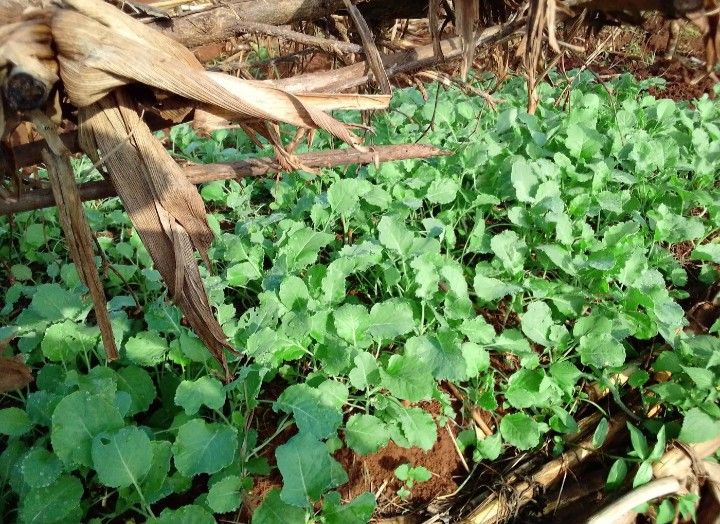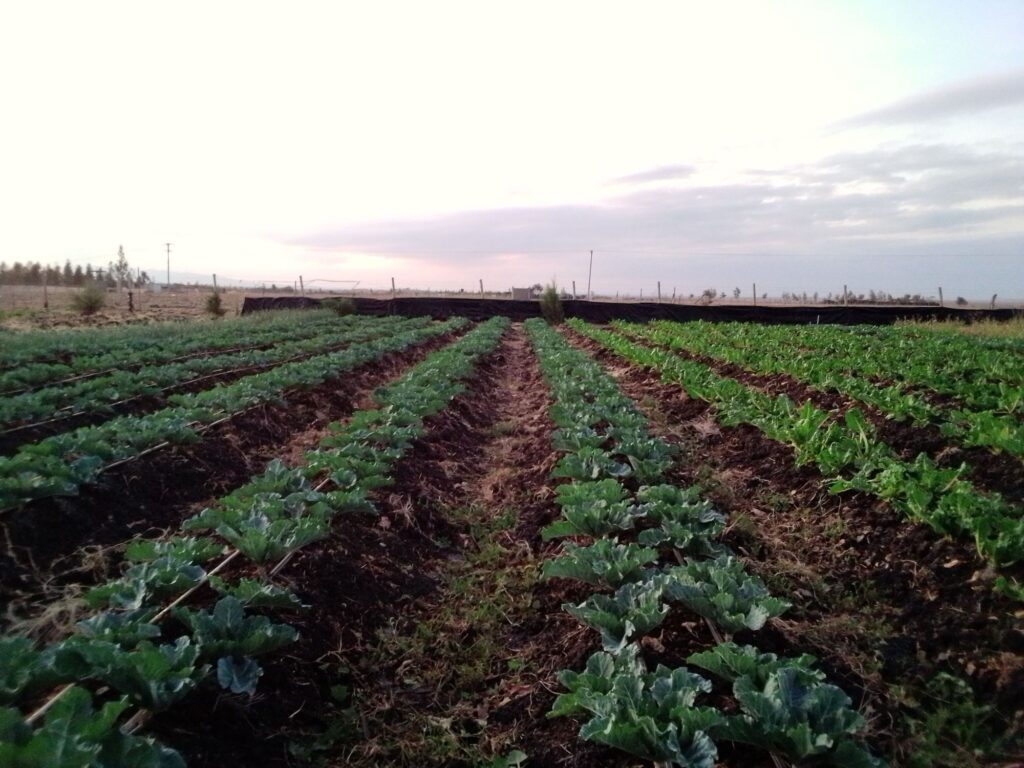
Yesterday on my way to another family member’s funeral meeting — a cousin lost a son in a grizzly road accident in Narok — I took a shortcut, crossing River Sio on a small rickety bridge. By that bridge, along black-soiled riverbank, I saw this guy, a young man in a sweat drenched yellow shirt and a dirty black baseball cap watering a nursery bed with a green watering can.
Also read: Harvests and Hearses: The Overlooked Cost of Funerals in Farming Communities
As I waved, I noticed it wasn’t just a single bed but quite a number of similar nursery beds spread across the bank. Impressed, I decided to move closer and have a little chat with the farmer who introduced himself as Philip.
Philip was a vegetable farmer who also grew vegetable seedlings for sale and also coupled as a brick maker. He was friendly and welcomed me to his farm, a beautiful plot with about six beds growing sukuma wiki (kales) at different stages of growth. There was a newly planted bed, the one he was watering, to another with sprouting seeds and a number of beds with seedlings of almost the same size. There’s one bed with only its half having seedlings. I came to learn he had already sold the other half and the remaining half already booked.
After chatting for about fifteen minutes or so with the guy — he turned out to be quite loquacious — I learned so much of the vegetable seedling business that was growing very fast across Busia county. More farmers are already venturing into it owing to its low requirements to start.
Seedling business is one of the most profitable ventures you can undertake as a farmer. The market for seedlings is there as more and more people are getting into vegetable farming to satisfy the ever growing vegetable market. Not all vegetable farmers have the time to make there own seedlings, hence resorting to buying ready seedlings from propagators.
Philip wasn’t the only one I have witnessed in that business, there’s a popular farmer called Wabwire who does the same but on a much larger scale, some on leased plots. It’s public knowledge that almost everything he posseses and accomplished including taking his kids to school is from the proceeds of seedling business. For the longest time he has been the one to go to person if you needed vegetable seedlings especially sukuma wiki for your garden, and I’m quite sure he’s the one who has inspired the likes of Philip.

Things to consider before getting into this business
Before venturing into growing seedlings specifically for selling to other farmers for transplanting, there are some things you should consider:
- Know the market – Market research is the first step to undertake before you even begin sowing your seeds. Do a comprehensive market research to know who you will be selling to and their seed preference. Don’t grow seeds that the buyers don’t like, you will end up with losses because no one is going to purchase them. While at it, in the beginning, it’s prudent to locate buyers in advance before sowing and start with only one or two beds and increase as demand increases.
- Site selection – you have to identify a site with free draining soils that is secure from animal destruction and theft. The site has to be accessible as well.
- Water availability – water is everything when it comes to farming. When it comes to seedlings a lot of water is needed. The nursery bed has to be with sufficient moisture at all times. When it comes to seedlings, insufficient moisture means some seeds won’t even germinate, and water stress for the seedlings means death or poor quality seedlings. Before beginning ensure you have a steady water supply.
- Quality seeds – always grow quality seeds purchased from certified vendors. This will ensure you have quality seedlings to customers satisfaction which will make them come again.
- Prices – the market research you did would help when it comes to setting prices. Prices can drive away or bring customers, so you have to be careful when it comes to setting them.
- Knowledge/skill – growing seedlings is a delicate process that require one to have some basic knowledge from bed preparation, picking the right seeds, to sowing and general management of the seedlings from day one to the time they’re being uprooted for transplanting. If you lack the skills, hire someone to grow the seedlings for you.
Materials needed
The following are some of the things you will need to have:
- Watering can for watering the beds.
- Water tank to store water.
- Sprinklers for watering
- Hose pipe to connect to sprinklers
- Mulching grass for covering the beds. You can use other materials available to you.
- Nursery shade for protecting the vulnerable seedlings against strong wind and storms
- Sprayer for foliar and insecticide spraying
- Seedling trays if you don’t plant directly in the beds.
Final thoughts
Vegetable seedlings can be profitable when done right. Vegetable farmers and gardeners who need only a handful seedlings will always be in need of seedling growers. Here’s where lies the market. People with kitchen gardens are unlikely to prepare their own nursery beds because they only need a few seedlings at a time and some don’t have the skills or time to prepare them anyway, which makes them reliant on seedling sellers.
Have a good market plan and take the seedlings that aren’t purchased from the farm to local markets.

Disclosure: This banner contains an affiliate link. I may earn a commission if you purchase through it, at no extra cost to you.
